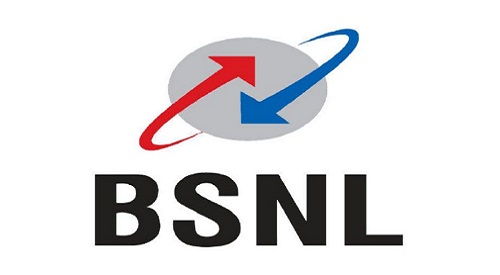The central government of India has mandated the use of Bharat Sanchar Nigam Limited (BSNL) and Mahanagar Telephone Nigam Limited (MTNL) network for broadband, internet, and leased lines in all state-controlled departments, public sector enterprises, and autonomous bodies.
As per the notification – “The government has, inter-alia, approved the mandatory utilisation of capacities of BSNL and MTNL by all ministries, departments, and central autonomous bodies. All ministries/departments are accordingly requested to issue necessary instructions to organisations under their control for mandatory utilisation of the BSNL/MTNL network for internet/broadband, landline, and leased line requirements.”

The circular, issued by the Ministry of Communications following the consultation with the Ministry of Finance, has been sent to secretaries of all ministries and departments for mandatory adherence.
There was a note from the Department of Expenditure accompanying the memorandum which stated that the decision of mandatorily using the services of BSNL and MTNL came from the cabinet. Every public department from now onwards will use the services of BSNL and MTNL only. Be it for landline, broadband/ internet, or leased line services, the services must come from BSNL or MTNL only.
The move has come on the backdrop of falling revenue of the two state-driven telecom service providers due to the non-availability of commercial fourth-generation or 4G services and non-participation in government-funded connectivity programs.
Last month BSNL has raised more than Rs 8,500 crore through sovereign guarantee bonds principally aimed to repay debt and fund capital expenditure. PK Purwar, Chairman and Managing Director of BSNL, has said that the telco is planning to raise another Rs 18,000 crore by monetising the assets within a year.
In October 2019, the Cabinet had approved a four-way revival plan of the two ailing state-owned telcos that included the allocation of 4G airwaves, assets monetisation, Voluntary Retirement Scheme (VRS), and a merger between them for better network operations.
Source: ET Telecom

![BSNL FTTH Plans [February 2024] - Latest Fiber Plans by BSNL BSNL-FTTH-Plans](https://netspeedtest.in/wp-content/uploads/2020/08/BSNL-FTTH-Plans-min.jpg)
![BSNL Broadband Plans [February 2024] - Latest BSNL DSL Broadband Plans BSNL-Broadband-Plans](https://netspeedtest.in/wp-content/uploads/2020/09/BSNL-Broadband-Plans-min.png)

